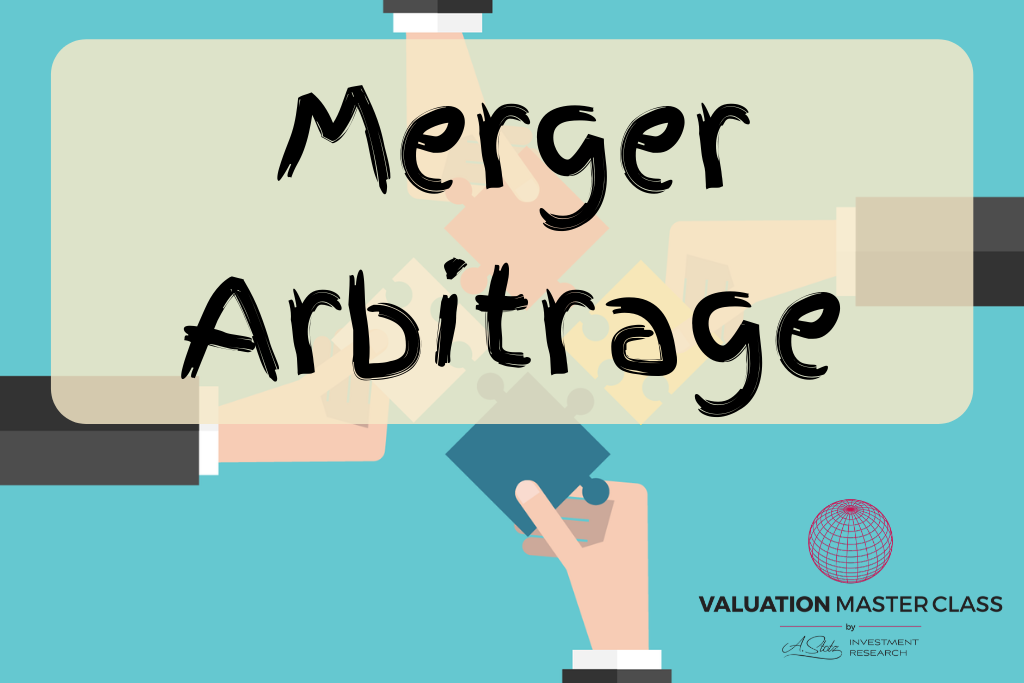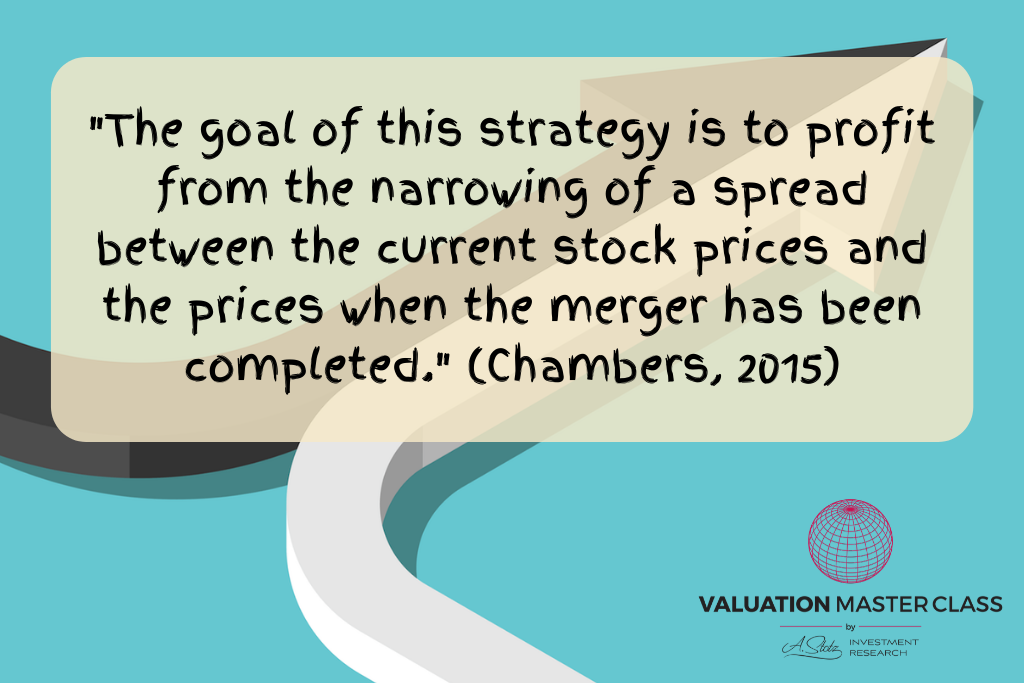Merger Arbitrage

This is a Valuation Master Class student essay by Jana Kristofova from October 17, 2018. Jana wrote this essay in Module 4 and has since completed all five modules of the Valuation Master Class.
Merger arbitrage is an investment strategy that trades stocks of companies in special situations. The purpose of this paper is to walk a reader through special situations, merger arbitrage strategy, and its goal and fundamentals. Furthermore, types of mergers and risks associated with merger arbitrage strategy are explained.
Lastly, features of merger strategy funds are explained. Despite the rising volume of merger & acquisition (“M&A”) deals in 2018, merger arbitrage funds do not perform well. Financial stress outweighs the current situation in the M&A field when it comes to the performance of merger arbitrage funds. Financial stress outweighs the current situation in M&A field when it comes to the performance of merger arbitrage funds.
Definition of special situations and merger arbitrage
According to Investopedia (2018), “a special situation refers to particular circumstances involving security that would compel investors to buy the security based on the special situation, rather than the underlying fundamentals of the security or some other investment rationale”. Term special situation covers the following events – spin-off, tender offer, mergers and acquisitions, bankruptcy, distress, litigation, capital structure dislocations, activism, or just other types of situations that markets do not understand (Investopedia, 2018).
Merger arbitrage is a deal-driven strategy that buys the stock of a firm that is the target of acquisition and sells the acquiring firm’s stock. The target company’s stock trades at a discount to the announced merger price (Wall Street Prep, 2018).
The goal of this strategy is to profit from the narrowing of a spread between the current stock prices and the prices when the merger has been completed. This strategy does not perform well in a down market. Returns are earned slowly by using this strategy, but loss occurs quickly if the merger fails (Chambers, 2015).
Types of merger arbitrage
The type of merger arbitrage strategy depends on the type of merger (Investopedia 2, 2018):
- Cash mergers – acquiring firm buys target’s shares by using cash
- Cash-and-stock mergers – acquiring firm offers cash and stock for a target
- Stock-for stock mergers – Acquiring firm offers to exchange its stock for target’s stock, so a traditional merger arbitrage buys the target’s stock (shares purchased equals shares offered for each target share) and shorts the acquirer’s stock. If the merger is successful, the target’s stock is converted into acquiring a firm’s stock and arbitrageur uses the converted stocks to cover its short position. Profit or loss, in this case, equals short proceeds with fewer costs of the long target.
Risks associated with merger arbitrage
According to Chambers (2015), the main risks associated with the merger arbitrage strategy are:
- Event risk – risk related to this event;
- Bidding war risk – risk that another firm starts a bidding contest;
- Financing risk – risk that the acquiring firm in a cash merger cannot secure financing to buy the target. This fact will widen the merger arbitrage spread;
- Regulatory risk – to prevent this type of risk, antitrust reviews ensure that mergers do not reduce competition on the market radically.
The Reason why merger arbitrage funds are not doing well
In general, merger arbitrage funds show a moderately strong average return, a very low standard deviation from the average and reasonable growth. This type of funds is positively correlated with equities, U. S. high yield bonds and commodities (Chambers, 2015).
However, empirical evidence shows that returns of merger arbitrage funds are more dependent on financial stress than the volume of mergers and acquisitions deals. Nowadays, the number of M&A deals is booming. This year (2018), the deal volume is supposed to get above US$ 5trillion. Despite that, returns of merger arbitrage funds are not showing results in the same direction. Those funds have been losing money. According to data provided by merger arbitrage funds, this year’s data were the second-, third- and sixth-worst months since data begins in 1999 (Brown, 2018). ta were the second-, third- and sixth-worst months since data begins in 1999 (Brown, 2018).
References
- Brown, A. The Reason Merger Arbitrage Funds Aren’t Doing Well. Bloomberg
- Chambers, D. R. et al. (2015). Alternative Investments: CAIA Level I. 3rd Edition, CAIA Association
- Investopedia (2018). Special Situation
- Investopedia 2 (2018). Merger Arbitrage
- Wall Street Prep (2018). Merger Arbitrage: A Simple Example

